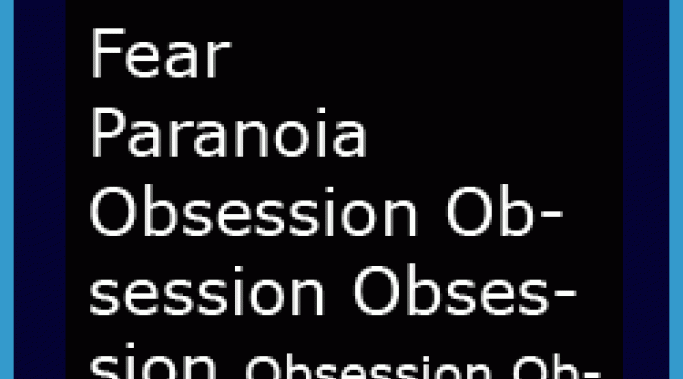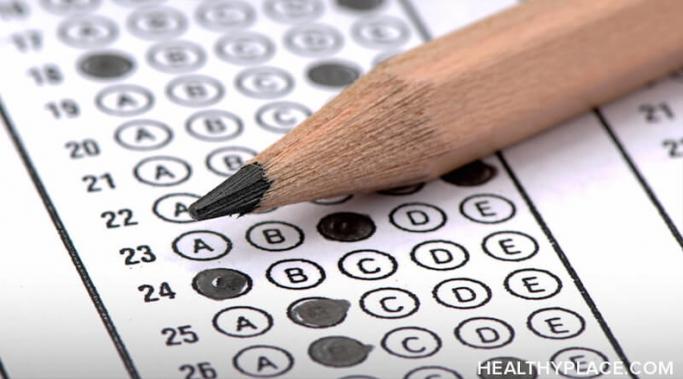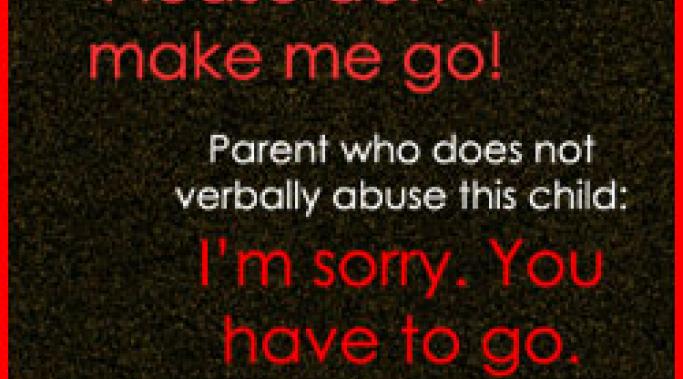How can you recognize verbal abuse disguised as a joke? Here's the thing: a loving partner will never call you ugly or stupid, even as a joke. A respectful husband or wife won't ever deliberately put you down in front of other people for a laugh. That's because it's not funny, it's verbal abuse thinly disguised as a joke.
Verbal Abuse in Relationships
There is an important difference between arguments and verbal abuse. Have you ever heard the expression, "You can't see the wood for the trees?" That's how a verbally abusive relationship made me feel. I spent so long trying to unpick my partner's behavior that I became blind to it, all the while thinking that if I could somehow do better, be better then the abuse would stop (Do You Abuse Yourself with Self-Blame?). I was in denial. I told myself that all couples argue. But I now know there is a clear distinction between normal relationship arguments and verbal abuse.
I’m Emma-Marie Smith, and I’m proud to be joining the Verbal Abuse in Relationships blog here at HealthyPlace. A few years ago, I met a man who was charming, intelligent, and good looking. My family liked him, my friends liked him, and he did all the things a good boyfriend does. He bought me flowers, left love notes under my pillow, and was always proud to introduce me to his friends and colleagues — but that wasn’t the whole story. The verbal abuse began weeks into our relationship and lasted for almost two years.
People wondering how to recover from emotional trauma really want to know how long recovery will take. Unfortunately, there is no solid time frame for recovering from emotional trauma. But, if we can slow down a minute and understand how to recover from emotional trauma, then the how long will it take part will handle itself.
So what do we say to a victim of domestic violence? More specifically, what should we say to a friend who is abused if they come to us for help? The confusion over what to say is warranted. Even my mother didn't know what to say to me when I cried to her about the abuse, and my mother is brilliant. However, since I've been an abuser's target, I have a good idea of what to say to a victim of domestic violence, and I'll tell you all about it.
Scientists study female domestic violence offenders more than in the past. Men and women differ in many ways, and no one knows if female domestic violence offenders' motivations to commit violence will turn out to be the same as male motivations. But seeing as we must start somewhere, it seems logical to begin with what we know about male offenders.
The research on female domestic violence offenders currently follows the research found relating to male offenders, namely the type of attachment style in intimate relationships, trauma symptoms and personality disorders. What can men look for to spot a female domestic violence offender?
Escaping abusive relationships involves more than the escape plan, and you won't know the depth of your problems until you break free. But, as you plan your escape, it often feels as if getting out of the abuse will make everything better. And once you get out, you will have well-deserved stages of bliss - you will often feel much better! But at first, as often as you feel better, you will feel worse or confused or doubtful of your ability to create a life of your own. The aftermath of escaping abusive relationships is an emotional minefield that therapists won't warn you about. I can help you avoid some of those mines.
No formula for escaping abuse exists; every abuse victim's escape story differs slightly. However, the domestic violence escape plan for almost all abuse victims takes shape when he or she can no longer excuse or cope with the abusive behavior. Sometimes, the abuse victim attends therapy when hit with the realization that escaping abuse is the best option. When that realization comes, the victim/survivor tends to focus on the escape and gives very little thought to what he or she may feel after escaping abuse. And guess what? Your therapist isn't going to tell you the future. But I will.
A verbal abuse quiz can do a lot of things. It can help you determine if you suffer from verbal abuse. It can change your mind about what verbal abuse is and is not. A verbal abuse quiz can even show you that (eek!) you abuse other people. But a quiz cannot make you be honest. So if you are not ready to take an honest look at your situation, then don't bother with this verbal abuse quiz. It can't help you if you lie.
What Role Does Verbal Abuse Play in Child Custody?
Verbal abuse and child custody remain mutually exclusive in today’s family court decisions. While verbal abuse breaks hearts and minds instead of bones (effects of verbal abuse), our family court system rarely considers verbal abuse when determining child custody. Unsettling as it is, family court may never consider verbal abuse and child custody needs concurrently for one reason: The First Amendment to the Constitution of the United States.









